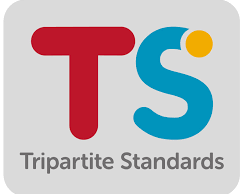A new Workplace Fairness Law aims to bring teeth to anti-discrimination efforts in Singapore by 2024.
When Prime Minister Lee Hsien Loong announced in August 2021 that the Tripartite Guidelines on Fair Employment Practices (TAFEP) would be enshrined into law, it marked a pivotal moment in Singapore’s battle against workplace discrimination. However, the guidelines, long criticized as “toothless,” remained non-binding, leaving employees vulnerable and errant employers undeterred.
Fast forward to 2024, Singapore is poised to introduce its first Workplace Fairness Law, building on TAFEP’s foundation. This new framework will strengthen protections for marginalized groups, such as workers with disabilities, women planning families, and mothers returning to the workforce. Caregiving responsibilities will also be recognized as a “protected characteristic,” further broadening the law’s reach.
A key aspect of the law is its power to publicly name and shame employers guilty of egregious discrimination, alongside the suspension of work pass privileges. This move directly addresses past criticisms of inadequate deterrence and gives the guidelines the “teeth and bite” long demanded by advocates.
The Numbers Behind TAFEP
Despite its limitations, TAFEP has made progress. Between 2014 and mid-2021, it handled an average of 379 complaints annually, with about one-third substantiated. Still, many cases of workplace discrimination likely go unreported or undetected, highlighting the need for stronger legislation to proactively curb unfair practices.
The Road Ahead
The Workplace Fairness Law is a welcome development, but its effectiveness depends on how well it integrates with TAFEP and its enforcement mechanisms. Beyond legal recourse, addressing workplace discrimination requires a cultural shift among employers to foster truly inclusive practices.
While workplace discrimination may never be fully eradicated, the introduction of bold legislation like this signals a commitment to protecting Singapore’s workforce. It is a step closer to a fairer workplace—one where employees are judged by merit, not by biases or outdated stereotypes.








